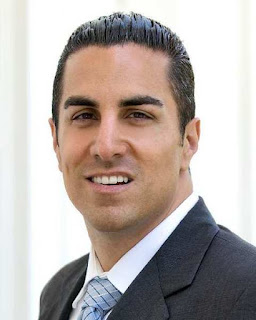By Kevin Smith, SGVN, kevin.smith@sgvn.com
Twitter.com/sgvnbiz
Posted: 12/18/2012 07:24:13 PM PST
Updated: 12/19/2012 10:19:05 AM PST
LA CANADA FLINTRIDGE
Traffic.
It's long been the bane of Southland commuters, many of whom must drive long distances to and from work each day. But what if you could harness all of that road surface vibration to produce green electricity?
That's what Assemblyman Mike Gatto, D-Los Angeles, hopes to do - and he's found an ally in the California Energy Commission. Building on an idea of Gatto's, the commission has announced that it will fund preliminary research on the potential of using the state's roadways to generate green electricity.
"You would embed them about 10 inches down," said Gatto, whose 43rd Assembly District includes La Canada Flintridge. "If you've ever stood in a parking garage at a mall you can feel all of that vibration. Well, these transducers would gather that energy and it would be collected at a central source."
The vibrations would then be converted into electricity that could power roadside lights, call boxes and even neighboring communities.
The research stems from Assembly Bill 360, which Gatto authored. The measure was approved by the state Legislature in 2011 but vetoed by Gov. Jerry Brown because of a lack of funding for the project.
Brown encouraged Gatto to work through the California Energy Commission's grantprocess to get the funding, however, and that has finally panned out.
"We don't know how much the funding will be yet, but this isn't one of those experiments that will cost millions of dollars," Gatto said. "First we have to collect the available studies. We sometimes try to remake the wheel, but we need to look at the existing scientific data on this."
Michael Gravely, a deputy division chief for the California Energy Commission's research and development division, said all the research, lab work and field testing that has been done on the subject is currently being compiled for evaluation.
"We'll look to see if it's cost-effective in relation to other renewable technologies," he said. "This contract is about a $95,000 research effort and it will tell us if we should move on to the next step."
Piezoelectric materials are currently used in everything from lighters to smartphones.
The energy commission is expected to complete its initial research on the technology by the end of January. Then it will determine if a small-scale-test project will be conducted by the state.
Gatto said Tokyo, Japan is already using a similar idea in its subway system.
"They put them in, not for the transportation, but for the humans who are stomping as they run for the subways," he said. "The European Union is putting some of these underneath their roads and Israel already has a road that is producing power."
The East Japan Railway Company installed piezoelectric flooring in their Tokyo railway station in 2009 and the energy generated by passing pedestrians powers all the displays in the station.
More recently, Italy has signed a contract to place the technology under a stretch of the Venice-to-Trieste Autostrada, and a dance club in San Francisco has piloted the technology under their dance floor to run their lighting. Then-Mayor Gavin Newsom also worked on piloting the technology in pedestrian walkways in downtown San Francisco.
Gatto chairs the Assembly's appropriations committee.
# # #
You can read this article and more at the Pasadena Star News HERE
Mike Gatto is the Chairman of the Appropriations Committee of the California State Assembly. He represents the cities of Burbank, Glendale, La Canada-Flintridge, La Crescenta, Montrose, the Los Angeles neighborhoods of Los Feliz, Silver Lake, Atwater Village, and portions of the Hollywood Hills and East Hollywood. www.asm.ca.gov/gatto


























